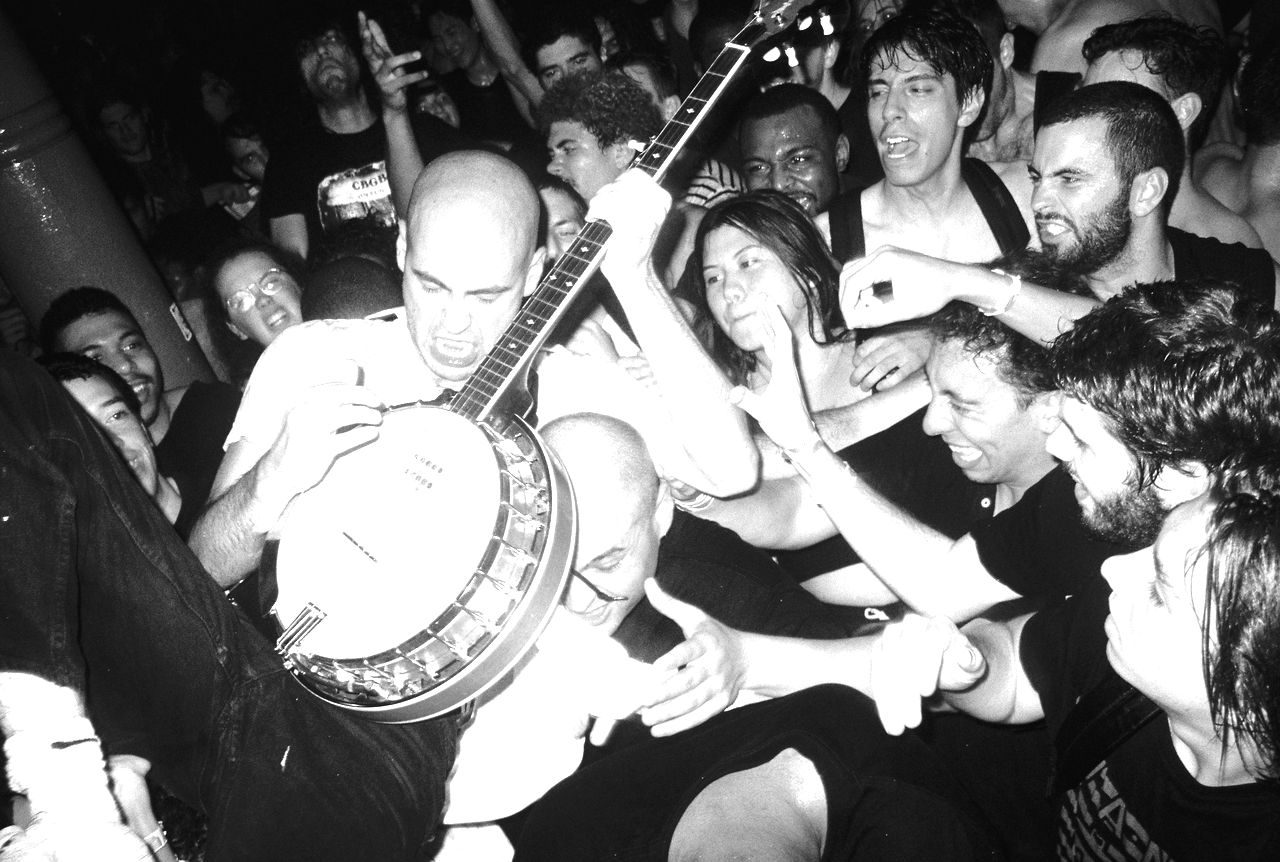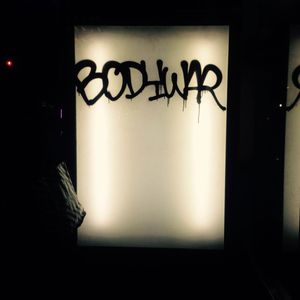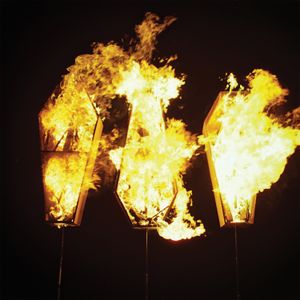

Show Me The Body
Follow Your Favorite Band Today!
Top Show Me The Body Community Posts
Story of Show Me The Body
Show Me the Body: A New York Hardcore Powerhouse
Show Me the Body (SMTB), hailing from the concrete jungle of New York City, burst onto the post-hardcore scene in 2009. This trio isn't afraid to get their hands dirty, blending elements of hip-hop, noise music, and sludge metal into a ferocious sound that's earned them a devoted following.
From Under the Bridge to the Big Leagues
The band's story begins with Julian Cashwan Pratt, lead vocalist and banjoist, and Harlan Steed, bassist, meeting in the hallowed halls of Elisabeth Irwin High School. Fueled by their shared passion for New York's hardcore scene, they cut their teeth performing in unconventional venues – think underpasses, alleys, and basements – giving them a raw and intimate connection with their audience. Their DIY ethic quickly earned them a reputation for their relentless energy and intense live shows.
Early Days: Yellow Kidney and a Sound That Shouts
In 2014, SMTB released their debut EP, "Yellow Kidney," a raw and unfiltered blast of sonic fury that introduced the world to their signature sound. The EP, self-released on SoundCloud, garnered critical acclaim and established them as a force to be reckoned with.
More to Come: A Band on the Rise
SMTB's journey is far from over. With a devoted fanbase, a sound that pushes boundaries, and a commitment to relentless innovation, they continue to carve their own path in the world of hardcore. Keep your eyes peeled for their next move – it's sure to be explosive.
Frequently Asked Questions
Bands you may like
More Hardcore Punk Bands
Discover more bands in the Hardcore Punk genre and explore the diverse sounds that define this musical style.
Browse All Hardcore Punk BandsMore Bands from United States
Discover the rich musical heritage of United States and explore bands that represent the country's unique sound and culture.
Browse All United States Bands


